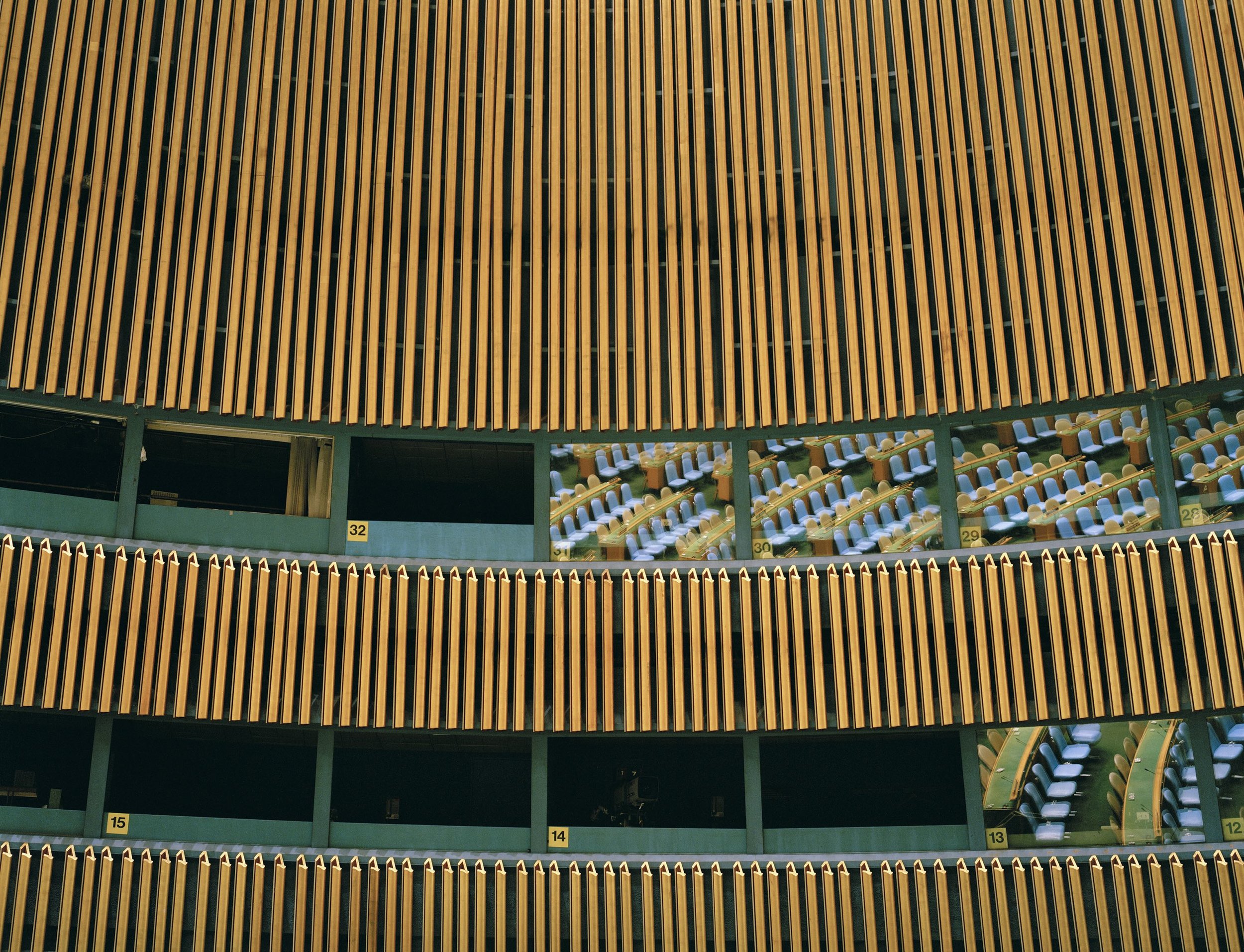Jason Oddy is a critically-acclaimed British Artist who produces visual investigations of politically- and ideologically-charged places and institutions around the globe. His photographic career concentrates on the politics of place and encompasses explorations of generally (publicly) inaccessible spaces, such as the Pentagon, ex-Soviet sanatoria, Oscar Niemeyer’s Algerian projects, the Guantanamo Bay and the United Nations headquarters in New York and Geneva. With his large-format camera, Oddy approaches his subjects—architectural sites—with the aim of analysing their ontological and ideological origins and implications. The results are captivating (and often unsettling) symmetries and geometric plays, telling of the inherent power structures that led to their creation.
Alongside photography, Oddy has written extensively on politics, art and architecture. His first book, “Notes du Désert” (Grasset, Paris), an exploration of America's post-9/11 anti-terror training grounds was published in 2017. His latest book “The Revolution Will Be Stopped Halfway”, 2019, centers Oscar Niemeyer’s Algerian work and the subversive politics that inspired his constructions.
Oddy’s work has been internationally published and exhibited in the Photographers' Gallery in London, at the Paris Photo, the Milan Triennale, the Tropenmuseum in Amsterdam, the Aperture Foundation in New York, and the Museum of European and Mediterranean Civilisations in Marseilles. His work is also part of numerous international collections, both public and private, including the Wellcome Collection, the Michael Wilson Centre for Photography, the Elton John Collection, Channel 4, Citibank Private Bank, DZ Bank and the University of Hertfordshire.
Throughout his career, Oddy has gathered numerous awards from funding bodies including the Arts Council England, and the Graham Foundation, whilst also enjoying an academic career at institutions such as the School of Visual Arts in New York, the Domus Academy in Milan, the University of the Arts in London, and the University for the Creative Arts in Farnham. He holds an MA (with distinction) in post-war literary theory from University College London.





















